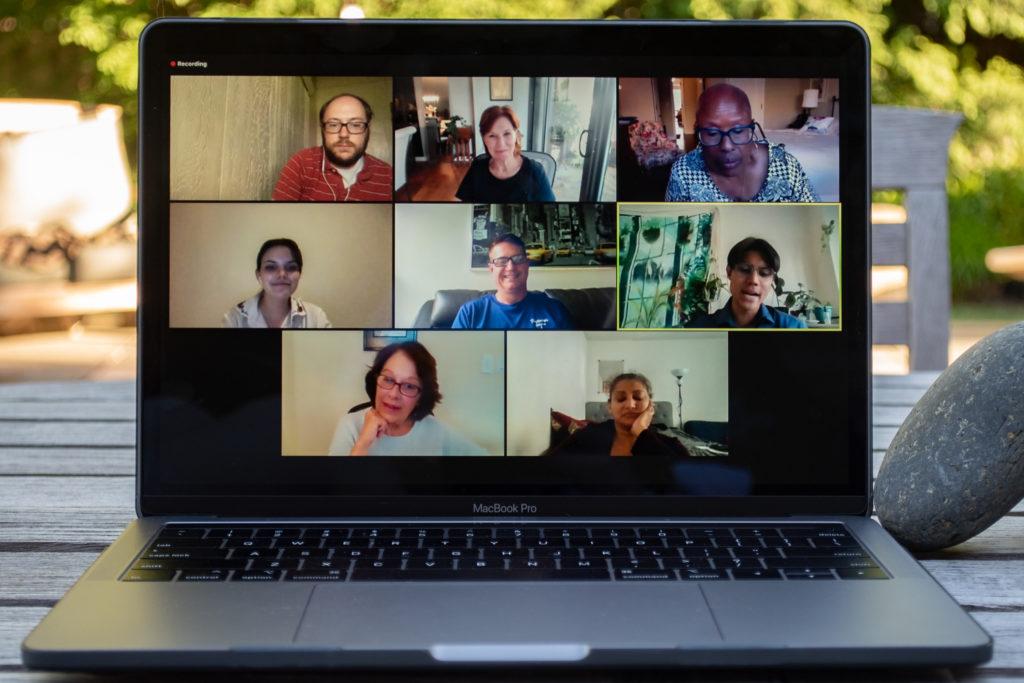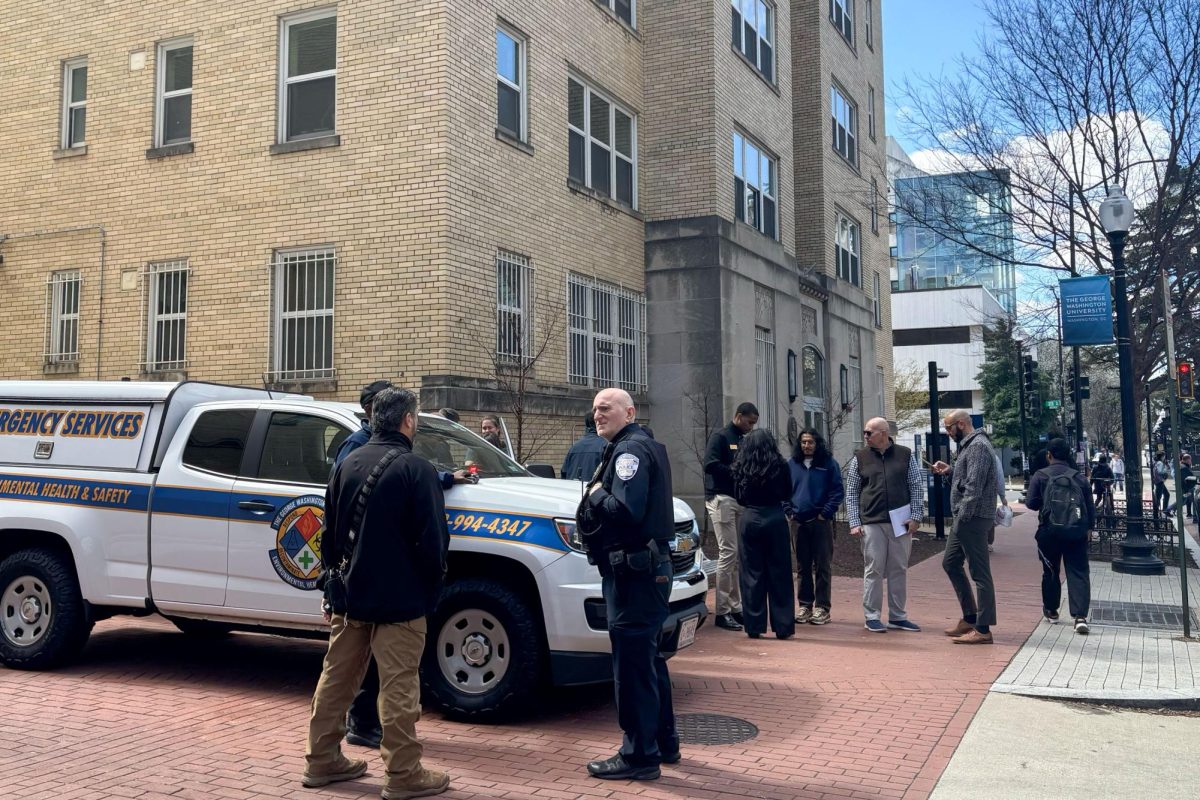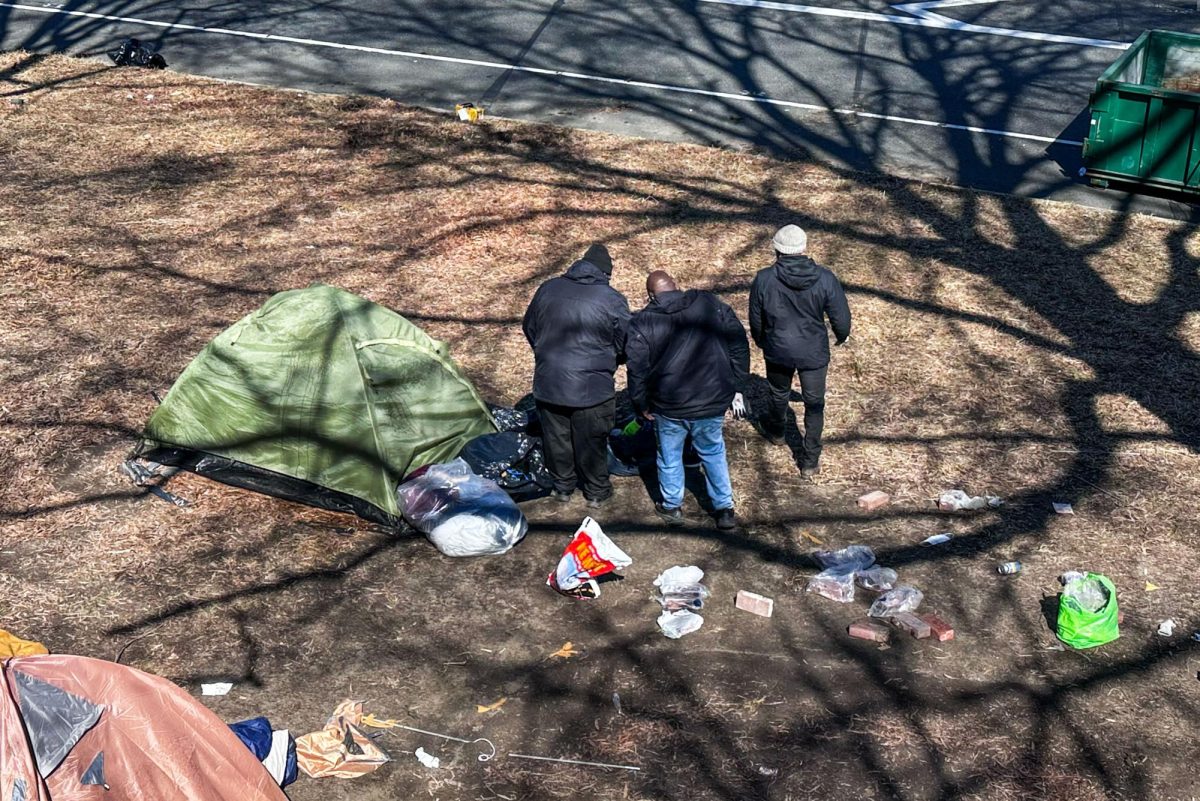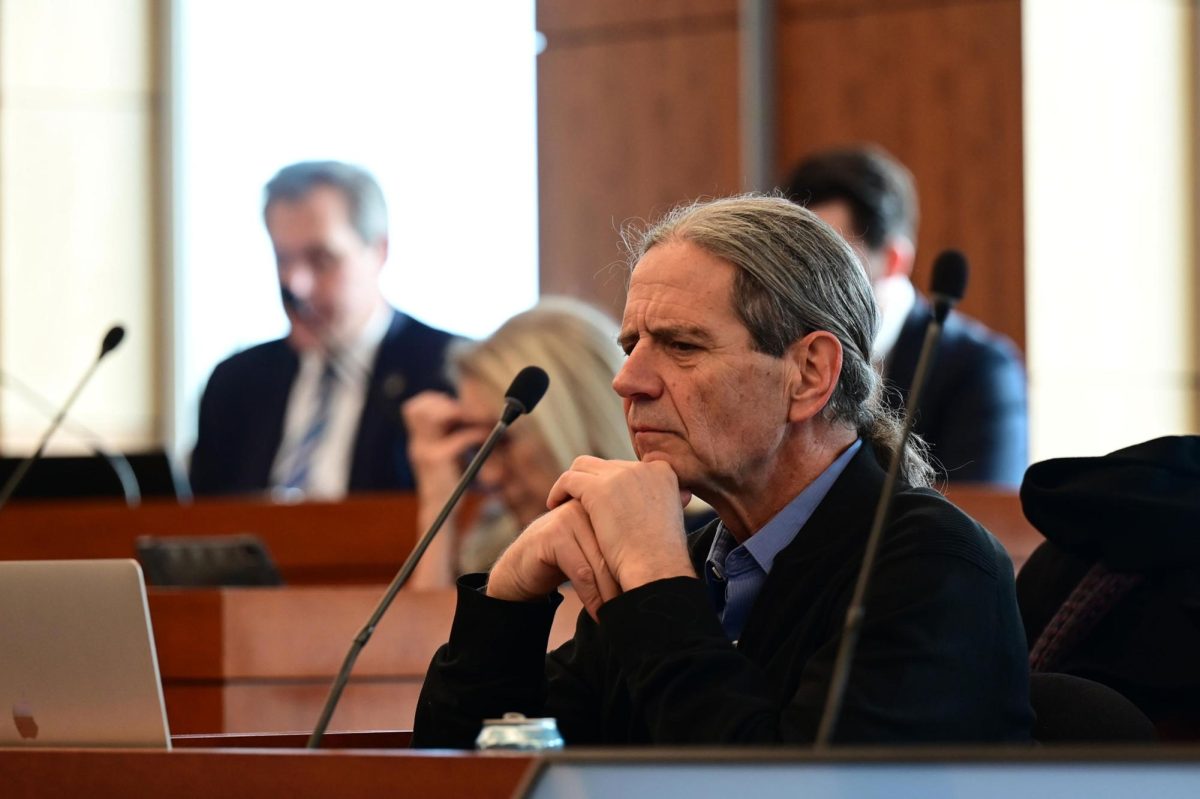Eight Advisory Neighborhood Commissioners will gather this week to discuss homelessness, Metro stops and other policies that affect daily life in Foggy Bottom – but what exactly is an ANC?
The Foggy Bottom and West End Advisory Neighborhood Commission, known as ANC 2A, is one of 40 ANCs across the District that oversee the needs of their constituents at a neighborhood level. A total of eight commissioners in 2A serve single member districts encompassing a handful of city blocks, spanning a group of constituents from students living in residence halls on campus to President Joe Biden in the White House.
You’ve probably noticed changes on campus that went through the ANC – the Nashman Center’s demolition last week, Thurston Hall’s renovation and the construction of the GW Hospital’s helipad all share the common thread of receiving input from the ANC.
But if you’ve never heard of the ANC, we’ve compiled everything you need to know about Foggy Bottom’s hyperlocal governing body:
What’s an ANC?
ANCs serve advisory bodies to D.C. agencies on issues affecting neighborhoods, like traffic problems and liquor licenses. District agencies are required to give ANC recommendations “great weight” when making decisions on local policy and are required to notify ANCs of programs that will affect the neighborhood.
Five ANC commissioners represent students living on campus – Commissioner and alum Yannik Omictin represents an area of campus that includes 1959 E St., Thurston and Mitchell halls, Commissioner Evelyn Hudson represents Shenkman and Amsterdam halls, Commissioner Jeri Epstein represents One Washington Circle Hotel and The Aston and Commissioner Adam Friend represents Townhouse Row, International House and Fulbright, JBKO, Munson and Madison halls.
The fourth commissioner is a student, junior Margaret McDonald, who represents a district solely encompassing on-campus constituents, known as 2A08. She represents The Dakota, District and Potomac houses, South, Strong, Guthridge, FSK and Lafayette halls, Building JJ, 2109 F St. and the small townhouses.
Adam Friend, a commissioner whose single member district includes JBKO and Fulbright halls, said ANC commissioners are the most local representation for residents and are necessary to advise larger D.C. agencies on what is happening in small neighborhoods.
“Our job in the ANC is to be the neighborhood’s voice in advising the District government,” Friend said. “Now, the word advisory is very important in that we advise them – they could refuse our advice.”
The District’s website states that the city’s ANCs range in size from two to 12 commissioners, and a total of 296 elected representatives – all unpaid and nonpartisan – serve in the District, with each single member district containing about 2,000 people.
Foggy Bottom’s 2A08 seat, currently held by McDonald, sat empty for about six months earlier this year, leaving 10 residence halls without representation. Junior Margaret McDonald filled the seat in May, becoming one of the youngest elected officials in the District.
More than half of ANC elections across the District were uncontested in 2020, with a single candidate running for the seat, according to OpenANC.
Powers they have
Commissioner Trupti Patel – whose district includes much of the Foggy Bottom historic district, bounded by New Hampshire Avenue, K Street and Interstate 66-I – said her primary responsibility as a commissioner is to serve as an advisor to D.C. Council members, specifically Ward 2 Council member Brooke Pinto, and present constituents’ issues to District officials.
“We make sure to amplify, elevate and escalate problems in the immediate SMD that we see, such as broken sidewalks, areas not being well lit,” she said. “We use the concept of our ‘great weight’ to inform members of the Council what we think of legislative items that they’re putting up to vote on.”
Commissioners have a say on many issues throughout the neighborhood – the ANC approved an agreement permitting the construction of a helipad on top of the GW Hospital and the University’s application to house students in the One Washington Circle Hotel during renovations to Thurston Hall.
The ANC also has some power to directly help citizens in Foggy Bottom – they distributed $12,000 in humanitarian grants to non-profit organizations in Foggy Bottom earlier this year, targeted to residents who have struggled financially during the pandemic.
What’s on the horizon
The Foggy Bottom and West End ANC’s October meeting, which will be held Wednesday, will feature an update from Rep. Eleanor Holmes Norton, D-D.C., according to the meeting’s agenda. GW officials will also present details about the University’s new dining system, and Washington Metropolitan Area Transit Authority officials will update commissioners on a potential plan to build a second entrance to the Foggy Bottom Metrorail station.
The agenda states the ANC will consider several resolutions at the meeting, including recommendations regarding the District’s encampment pilot program that’s set to evict the E Street encampment near campus and a sexual harassment data collection bill currently being considered by the D.C. Council.
The ANC has also been in ongoing dialogue with Flixbus to install a bus stop near campus that could transport students to New York City or Richmond, Virginia.
Patel said commissioners heavily rely on engagement from their constituents to learn the issues to address in their district. She said more students should get involved in local government, and students’ voices will not be heard unless they advocate for themselves whenever possible.
“I want to see more GW students getting involved and getting active and participating in ANC meetings, and they themselves running for office,” she said. “Don’t complain about things not getting done if you’re not up there on the dais advocating for it.”








